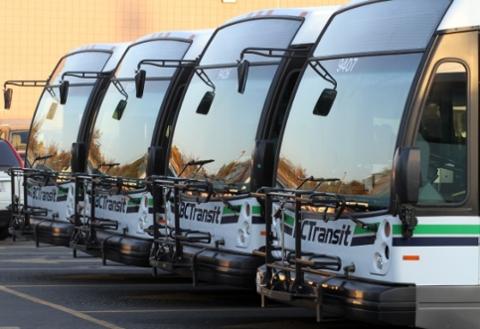To reduce emissions BC Transit is purchasing 66 new electric buses for nine regions across the province.
The buses are on order from Nova Bus and New Flyer and will start to arrive once the 134 new charging ports have been installed in each region and there is infrastructure to handle the load.
Director of electrification Chad Berndt says right now it’s too soon to determine just how many buses will be allotted for each region, but BC Transit should have an idea soon.
“We have charging infrastructure programs that are advancing right now through the design process,” he says. “As those projects progress, we’ll be able to identify how many, and the exact timing, as to when buses are going into each community.”
Berndt says the first buses are expected to start being rolled out next year and into 2026.
“We expect the first buses to start arriving in early 2025,” he says. “And then be arriving in phases through into 2026.”
The project, including infrastructure, is expected to cost a total of over $390 million, and Berndt says several factors need to be in place, and partners included, for this project to work.
He adds it’s critical to ensure there is enough supply which is why they’re collaborating with BC Hydro to make sure the grid can handle it.
“The utility must be involved,” he says. “There’s power distribution equipment, and the charging units themselves and a dispenser.”
Berndt estimates each bus will be able to travel up to 350 kilometres once they are fully charged, but the range could vary depending on the day.
“The batteries are roughly 10 times the size of a car battery,” he says. “We expect, on average, they’ll be able to travel between 250 to 300 kilometres on a single charge throughout the year.
“On good days they could get as high as 450 kilometres.”
BC Transit says they’re expecting to procure 115 new battery electric buses with the funding.
The buses are expected to be distributed to Chilliwack, Kamloops, Kelowna, the Regional District of Nanaimo, Nelson, Powell River, Sunshine Coast, Victoria and Whistler.
The project is being funded by the Government of Canada, the province of BC and local municipalities.






